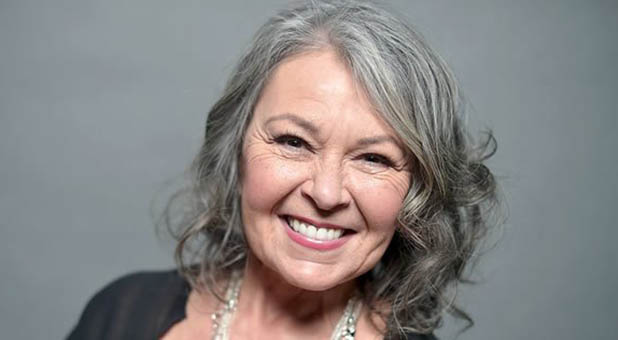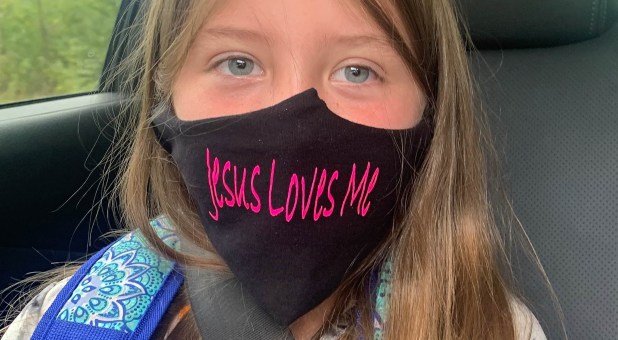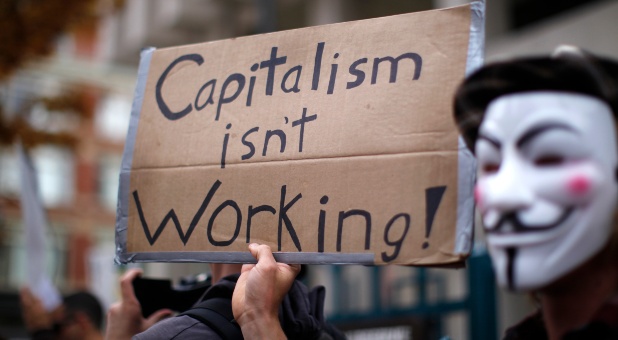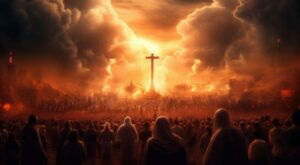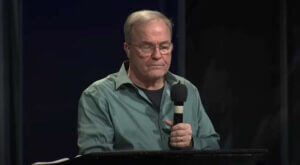A time-worn attack many liberals like to use against conservatives they disagree with is to call them “Nazis” or to equate them with Adolph Hitler.
Now we’ll see how they like it when the shoe’s on the other foot.
After the Obama Administration refused to veto U.N. Resolution (UNR) 2334, which censured Israel for its settlements in the West Bank area, comedienne and former Green Party presidential candidate Roseanne Barr unleashed another of her famous “tweet storms” on Twitter. In the tirade, she accused Obama of engaging in tactics popularized by Hitler and the Nazis during the 1930s in Germany.
First, she wrote: “nazis enacted anti jewish laws on the eve of jewish holidays-exactly as @POTUS has done on eve of Hanukkah. Don’t light candles 2night, BHO!”
Hanukkah began at sundown on Christmas Eve this year and continues through New Year’s Eve. A few minutes after her first tweet, Barr posted this: “Liberal US Jews just helped Obama condemn the Jewish State to worldwide #BDS and Terrorism. If they light Hanukkah candles 2night= <g>”
And: “Today is Shabbat-so I will say: Every Evil wished upon Israel and the Jewish Ppl is returned to its Source, cancelled and cleared.”
UNR 2334 declares Israeli settlements in the West Bank have no legal basis, and orders a halt to construction of new settlements. President-elect Donald Trump has pledged “things will be different” after Jan. 20, when he is inaugurated, and Israeli Prime Minister Benjamin Netanyahu has said he will ignore the resolution—in fact, the Knesset voted after the resolution was adopted to go forward with planned settlements in East Jerusalem.
The Obama administration defended its decision to abstain from the vote on the resolution—a break with the decades-long position of the U.S. government to defend Israel from such resolutions—in a convoluted explanation delivered by U.S. Ambassador to the U.N. Samantha Power. Shortly after the U.N. Security Council voted 14-0 to adopt the resolution, she said:
Let me begin with a quote: “The United States will not support the use of any additional land for the purpose of settlements during the transitional period. Indeed, the immediate adoption of a settlement freeze by Israel, more than any other action, could create the confidence needed for wider participation in these talks. Further settlement activity is in no way necessary for the security of Israel and only diminishes the confidence of the Arabs that a final outcome can be freely and fairly negotiated.”
This was said in 1982 by President Ronald Reagan. He was speaking about a new proposal that he was launching to end the Israeli-Palestinian conflict. While ultimately, of course, President Reagan’s proposal was not realized, his words are still illuminating in at least two respects.
First, because they underscore the United States’ deep and long-standing commitment to achieving a comprehensive and lasting peace between the Israelis and Palestinians. That has been the policy of every administration, Republican and Democrat, since before President Reagan and all the way through to the present day.
Second, because President Reagan’s words highlight the United States’ long-standing position that Israeli settlement activity in territories occupied in 1967 undermines Israel’s security, harms the viability of a negotiated two-state outcome and erodes prospects for peace and stability in the region. Today, the Security Council reaffirmed its established consensus that settlements have no legal validity. The United States has been sending the message that the settlements must stop—privately and publicly—for nearly five decades, through the administrations of Presidents Lyndon B. Johnson, Richard Nixon, Gerald Ford, Jimmy Carter, Ronald Reagan, George H.W. Bush, Bill Clinton, George W. Bush and now Barack Obama. Indeed, since 1967, the only president who had not had at least one Israeli-Palestinian-related Security Council resolution pass during his tenure is Barack Obama. So our vote today is fully in line with the bipartisan history of how American presidents have approached both the issue—and the role of this body.
Given the consistency of this position across U.S. administrations, one would think that it would be a routine vote for the U.S. to allow the passage of a resolution with the elements in this one, reaffirming the long-standing U.S. position on settlements, condemning violence and incitement, and calling for the parties to start taking constructive steps to reverse current trends on the ground. These are familiar, well-articulated components of U.S. policy.
But in reality, this vote for us was not straightforward, because of where it is taking place—at the United Nations. For the simple truth is that for as long as Israel has been a member of this institution, Israel has been treated differently from other nations at the United Nations. And not only in decades past—such as in the infamous resolution that the General Assembly adopted in 1975, with the support of the majority of Member States, officially determining that, “Zionism is a form of racism”—but also in 2016, this year. One need only look at the 18 resolutions against Israel adopted during the U.N. General Assembly in September; or the 12 Israel-specific resolutions adopted this year in the Human Rights Council—more than those focused on Syria, North Korea, Iran and South Sudan put together—to see that in 2016, Israel continues to be treated differently from other member states.
Like U.S. administrations before it, the Obama Administration has worked tirelessly to fight for Israel’s right simply to be treated just like any other country—from advocating for Israel to finally be granted membership to a U.N. regional body, something no other U.N. member state had been denied; to fighting to ensure that Israeli NGOs are not denied U.N. accreditation simply because they are Israeli, to getting Yom Kippur finally recognized as a UN holiday; to pressing this council to break its indefensible silence in response to terrorist attacks on Israelis. As the United States has said repeatedly, such unequal treatment not only hurts Israel, it undermines the legitimacy of the United Nations itself.
The practice of treating Israel differently at the U.N. matters for votes like this one. For even if one believes that the resolution proposed today is justified—or, even more, necessitated —by events on the ground, one cannot completely separate the vote from the venue.
And member states that say they are for the two-state solution must ask themselves some difficult questions. For those states that are quick to promote resolutions condemning Israel, but refuse to recognize when innocent Israelis are the victims of terrorism—what steps will you take to stop treating Israel differently? For those states that passionately denounce the closures of crossings in Gaza as exacerbating the humanitarian situation but say nothing of the resources diverted from helping Gaza’s residents to dig tunnels into Israeli territory so that terrorists can attack Israelis in their homes – what will you do to end the double-standard that undermines the legitimacy of this institution?
Member states should also ask themselves about the double standards when it comes to this Council taking action. Just this morning we came together, as a Council, and we were unable to muster the will to act to stop the flow of weapons going to killers in South Sudan, who are perpetrating mass atrocities that the UN has said could lead to genocide. We couldn’t come together just to stem the flow of arms. Earlier this month, this Council could not muster the will to adopt the simplest of resolutions calling for a seven-day pause in the savage bombardment of innocent civilians, hospitals, and schools in Aleppo. Yet when a resolution on Israel comes before this Council, members suddenly summon the will to act.
It is because this forum too often continues to be biased against Israel; because there are important issues that are not sufficiently addressed in this resolution; and because the United States does not agree with every word in this text, that the United States did not vote in favor of the resolution. But it is because this resolution reflects the facts on the ground – and is consistent with U.S. policy across Republican and Democratic administration throughout the history of the State of Israel – that the United States did not veto it.
The United States has consistently said we would block any resolution we thought would undermine Israel’s security or seek to impose a resolution to the conflict. We would not have let this resolution pass had it not also addressed counterproductive actions by the Palestinians such as terrorism and incitement to violence, which we’ve repeatedly condemned and raised with the Palestinian leadership, and which, of course, must be stopped.
Unlike some on the U.N. Security Council, we do not believe that outside parties can impose a solution that has not been negotiated by the two parties. Nor can we unilaterally recognize a future Palestinian state. But it is precisely our commitment to Israel’s security that makes the United States believe that we cannot stand in the way of this resolution as we seek to preserve a chance of attaining our long-standing objective: two states living side-by-side in peace and security. Let me briefly explain why.
The settlement problem has gotten so much worse that it is now putting at risk the very viability of that two-state solution. The number of settlers in the roughly 150 authorized Israeli settlements east of the 1967 lines has increased dramatically. Since the 1993 signing of the Oslo Accords—which launched efforts that made a comprehensive and lasting peace possible—the number of settlers has increased by 355,000. The total settler population in the West Bank and East Jerusalem now exceeds 590,000. Nearly 90,000 settlers are living east of the separation barrier that was created by Israel itself. And just since July 2016—when the Middle-East Quartet issued a report highlighting international concern about a systematic process of land seizures, settlement expansions and legalizations—Israel has advanced plans for more than 2,600 new settlement units. Yet rather than dismantling these and other settler outposts, which are illegal even under Israeli law, now there is new legislation advancing in the Israeli Knesset that would legalize most of the outposts—a factor that propelled the decision by this resolution’s sponsors to bring it before the Council.
The Israeli Prime Minister recently described his government as “more committed to settlements than any in Israel’s history,” and one of his leading coalition partners recently declared that “the era of the two-state solution is over.” At the same time, the Prime Minister has said he is still committed to pursuing a two-state solution. But these statements are irreconcilable. One cannot simultaneously champion expanding Israeli settlements and champion a viable two-state solution that would end the conflict. One has to make a choice between settlements and separation.
In 2011, the United States vetoed a resolution that focused exclusively on settlements, as if settlements were they only factor harming the prospects of a two-state solution. The circumstances have changed dramatically. Since 2011, settlement growth has only accelerated. Since 2011, multiple efforts to pursue peace through negotiations have failed. And since 2011, President Obama and Secretary Kerry have repeatedly warned—publicly and privately—that the absence of progress toward peace and continued settlement expansion was going to put the two-state solution at risk, and threaten Israel’s stated objective to remain both a Jewish State and a democracy. Moreover, unlike in 2011, this resolution condemns violence, terrorism and incitement, which also poses an extremely grave risk to the two-state solution. This resolution reflects trends that will permanently destroy the hope of a two-state solution if they continue on their current course.
The United States has not taken the step of voting in support of this resolution because the resolution is too narrowly focused on settlements, when we all know—or we all should know – that many other factors contribute significantly to the tensions that perpetuate this conflict. Let us be clear: even if every single settlement were to be dismantled tomorrow, peace still would not be attainable without both sides acknowledging uncomfortable truths and making difficult choices. That is an indisputable fact. Yet it is one that is too often overlooked by members of the United Nations and by members of this Council.
For Palestinian leaders, that means recognizing the obvious: that in addition to taking innocent lives—the incitement to violence, the glorification of terrorists and the growth of violent extremism erodes prospects for peace, as this resolution makes crystal-clear. The most recent wave of Palestinian violence has seen terrorists commit hundreds of attacks – including driving cars into crowds of innocent civilians and stabbing mothers in front of their children. Yet rather than condemn these attacks, Hamas, other radical factions and even certain members of Fatah have held up the terrorists as heroes and used social media to incite others to follow in their murderous footsteps. And while President Abbas and his party’s leaders have made clear their opposition to violence, terrorism and extremism, they have too often failed to condemn specific attacks or condemn the praised heaped upon the perpetrators.
Our vote today does not in any way diminish the United States’ steadfast and unparalleled commitment to the security of Israel, the only democracy in the Middle East. We would not have let this resolution pass had it not also addressed counterproductive actions by Palestinians. We have to recognize that Israel faces very serious threats in a very tough neighborhood. Israelis are rightfully concerned about making sure there is not a new terrorist haven next door. President Obama and this administration have shown an unprecedented commitment to Israel’s security because that is what we believe in.
Our commitment to that security has never wavered, and it never will. Even with a financial crisis and budget deficits, we’ve repeatedly increased funding to support Israel’s military. And in September, the Obama administration signed a Memorandum of Understanding to provide $38 billion in security assistance to Israel over the next 10 years—the largest single pledge of military assistance in U.S. history to any country. And as the Israeli Prime Minister himself has noted, our military and intelligence cooperation is unprecedented. We believe, though, that continued settlement building seriously undermines Israel’s security.
Some may cast the U.S. vote as a sign that we have finally given up on a two-state solution. Nothing could be further from the truth. None of us can give up on a two-state solution. We continue to believe that that solution is the only viable path to provide peace and security for the state of Israel, and freedom and dignity for the Palestinian people. And we continue to believe that the parties can still pursue this path, if both sides are honest about the choices, and have the courage to take steps that will be politically difficult. While we can encourage them, it is ultimately up to the parties to choose this path, as it always has been. We sincerely hope that they will begin making these choices before it is too late. {eoa]
See an error in this article?
To contact us or to submit an article


